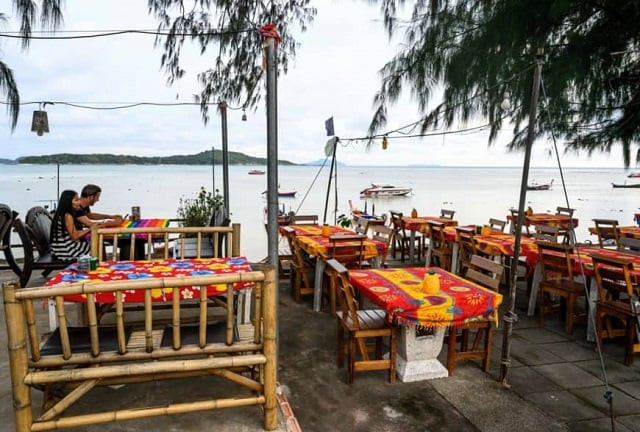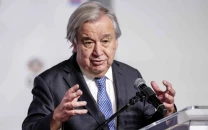Shunned by Chinese, Thailand's Phuket braces for rare slump
Tourism accounts for 18 per cent of Thailand's gross domestic product

A couple sit at a restaurant on Raway beach on Phuket island. - Hotels in Thailand's most popular holiday island have been forced to slash prices with rooms left vacant and beaches sparse as tourist chiefs struggle with a plunge in visitors from China caused by the US trade war and stronger baht. PHOTO: AFP.
Located on the Andaman Sea and known for its beaches and nightlife, sun-drenched Phuket was the most visited destination in the country last year after Bangkok and a good gauge of the state of its crucial travel industry.
Tourism accounts for 18 per cent of Thailand's gross domestic product and Chinese holidaymakers make up more than a quarter of total arrivals.
Turkey to establish Centre of Excellence in tourism
But while 2.2 million people from the country visited in 2018, according to official figures, numbers for January-September were down almost a fifth on-year.
Claude de Crissey, Honourary Consul of France in Phuket and owner of about 40 rooms in the popular Patong Beach area, said Chinese tourists are usually present even during the current low season.
"That was not the case this year," he said, adding he had to lower his prices by as much as 50 per cent.
The problem is not just in Phuket, with hotels also struggling to fill rooms in the seaside resort of Pattaya on the mainland and Koh Samui island.
Trade tensions with the US have already made some Chinese reluctant to take holidays owing to uncertainty back home, while the Thai baht has risen around 10 per cent against the yuan this year.
A boating disaster off Phuket's coast that killed 47 Chinese holidaymakers has also scared some off.
"We are worried," an industry insider told AFP, declining to be named due to the sensitivity of the topic in a country where tourism provides tens of thousands of jobs.
Adding to the headache is the fact that more than 3,000 new hotel rooms are being constructed on the island, raising the question of who will fill them.
"In terms of business, it's not good," said Kongsak Khoopongsakorn, vice president of the association of hotels in Thailand and director of Vijitt Resort.
"Because...we have more hotels, more rooms to sell, we have more restaurants, more coffee shops."
Still, tourism authority chairman Yuthasak Supasorn told AFP he remained "optimistic", adding: "We should reach our goal of 39.8 million foreign visitors" this year.
However, that is only up from 38.2 million in 2018, much less than the jump seen from the previous year's total of 35.6 million.
Now hoteliers and tour package operators are targeting visitors from elsewhere, particularly India, which experts see as a huge untapped market.
"We are counting on the Indians to revive the sector," Kongsak said.
A rapid expansion of the middle class in India, increased direct flights and visa-free travel have prompted Thailand to revise forecasts upwards.
Azerbaijan plans to start direct flights to Pakistan
It now expects two million Indian tourists this year, after an increase of nearly 25 per cent on-year in the first seven months.
But for now, the lower arrivals is evident on the streets of Phuket.
"I've never seen anything as bad as what it is at the moment," said Paul Scott from Australia, who said he has been coming to Thailand for 15 years.
He mainly blamed the stronger baht for the drop-off but also the fact that Thailand wasn't the untouched vacation paradise it once was. "Now it's not so new...and it's not cheap," he said.



















COMMENTS
Comments are moderated and generally will be posted if they are on-topic and not abusive.
For more information, please see our Comments FAQ